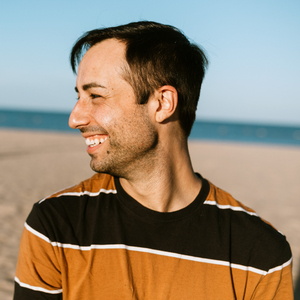Self Acceptance is Recovery
Author:
Eric Dorsa
I recently listened to a podcast with Brené Brown and Tim Ferris that reminded me of one of the most significant gifts in my recovery: radical self-acceptance. My recovery is synonymous with self-acceptance, since my recovery is firmly rooted in self-love and self-respect. During the throes of my eating disorder – and even in early recovery – I hated and feared everything I am today, even the parts of myself that I now cherish. I remain indebted to fellow recovery warriors, all of whose words and actions have taught me that I am not alone. I am whole and worthy of loving myself. Their words have changed how I view myself, my life, and my recovery.
“The only thing that was ever wrong with me was my belief that there was something wrong with me.”
Glennon Doyle
In my early recovery, I remember feeling an overwhelming sense of brokenness. I was lost in a tumultuous sea of disordered thinking and overwhelming emotions. Years of conditioning had allowed me to bury my fears, and instilled within me the belief that I was my eating disorder. And while I wanted to live, I didn’t know how. I operated under the belief that I was damaged and needed to fix myself, perhaps even punish myself. I know now that I was in deep pain, and needed to learn to love myself while healing.
Years ago, I believed that being a queer person was dangerous, and I was unworthy of love and belonging. I initially viewed my eating disorder as a punishment for who I was. When I began to see that this very belief was making me sick, I then began to challenge it. I saw openly queer people like Glennon Doyle sharing their experiences of worthiness, self-love, and recovery. I gradually realized that I couldn’t hate myself into loving myself. I began to ask myself what felt like the most challenging question: “What if I too am worthy of love and belonging? What if I am actually okay?”
“I like to say that, you know, radical self-love is contagious. I love it. You can totally catch it like a cold, but so is body shame, you know, and the truth of the matter is, we live in a world where we’re constantly passing on body shame, all the time. And so if we’re going to be contagious either way, I figure, I might as well be spreading some radical self-love.”
Sonya Renee Taylor
Some of the earliest shame I experienced was rooted in my existence in a queer body. “Boys don’t act like that; boys don’t walk like that; why can’t you act like a man?” These continued comments made my body feel unsafe, and I used my eating disorder as a way to avoid existing in my queer skin. It was only when I realized the inextricable link between recovery and a willingness to accept myself as a queer person that I began to find my liberation. I continued my progress when I further recognized that my eating disorder was a disordered way to keep me safe; I began to find healing in an accepting and supportive community. What I know today is that when I love and accept myself as I am, I give those around me permission to do the same. One-way liberation does not exist, and self-love is not about believing I am perfect. It is, in fact, the opposite: it is about still loving myself even when I feel like I am less than.
“In a society that tells you to put yourself last, self-acceptance and self-love are almost revolutionary”
Brené Brown
Our culture is one that promotes toxic body standards, and frequently encourages body shaming organized by gender. When I began my life in recovery – living from a values-based place of worthiness and connection – I began to see that I was an outsider. Our society dictates that we should sit down, be quiet, feel less than; we are often told (in various both explicit and implicit ways) to ‘reorganize’ ourselves to specific standards. If you dare to stand up and say you are worthy, you are labeled cocky. If you assert yourself and state your boundaries, you are told you are selfish.
When I dared to accept myself as a queer person, I was initially told that I was sick and mistaken: echoing society’s frequent messaging that is designed to make us feel incomplete. When I can see my internal worth and value, and believe in my own power, I feel revolutionary. And while I don’t always find myself in this space, the pain I feel when I forget my worthiness is a stark reminder to change course and seek self-love. I once again rejoin the revolution, and show others the path forward: a life of belonging and self-acceptance, without societal constraints.
Book Recommendations:
Untamed by Glennon Doyle
The Gifts of Imperfection by Brené Brown
The Body Is Not an Apology by Sonya Rene Taylor
Struggling with an eating disorder?
One conversation can make all the difference. Connect with us today.
Get Help NowConnect With Us

